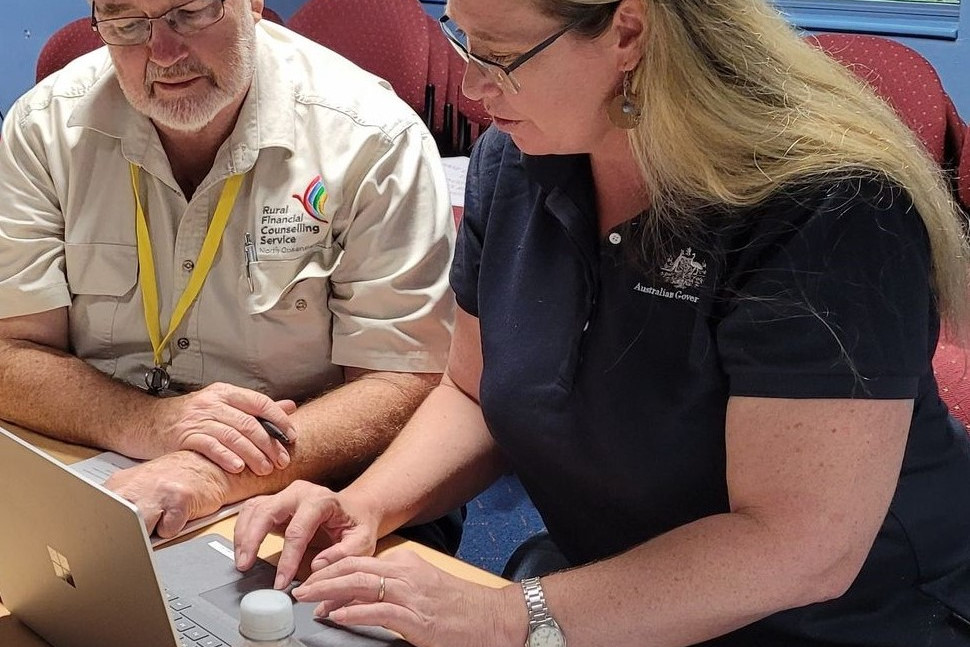Community & Business
23 April, 2021
Surviving and thriving in the grazing game
PRODUCERS gathered at an interactive workshop in Mareeba recently to learn how to thrive, not just survive in the northern grazing business.

BY SALLY TURLEY
PRODUCERS gathered at an interactive workshop in Mareeba recently to learn how to thrive, not just survive in the northern grazing business.
The workshop addressed four aspects of the cattle industry – business tools, succession planning, communication and weather interpretation.
Ian Maclean of Bush Agribusiness presented information from the Business Edge Workshop, the Australian Beef Report, Bush Agribusiness and anecdotal evidence from producers to help establish why people are in the beef business and what constitutes a good business.
He looked at what the top performing graziers across the Tablelands, Croydon, Mckinlay, Richmond, Flinders and Charters Towers shires were doing and analysed what put them ahead of the game.
He questioned what was a safe level of equity and whether the business and the family could survive succession.
"In northern Queensland, the top 25% of business performers managed 51% of the cattle herd, 49% of the land area, generated 56% of the beef produced and effectively made all the industry profits," Mr Maclean said.
Why? Because they have more productive herds that converted feed more efficiently resulting in more income/animal; they had more targeted expenditure and used labour more efficiently, with more animal units/ full time staff members.
They ran an average of 6,861 head of cattle, almost double the regional average of 3,774, so they achieved better economies of scale, reduced overheads and managed an impressive $1.29kg liveweight production cost compared to the regional average of $1.89/kg.
When it came to succession however, things were not so clear. With around 5,500 Australians turning 65 each week it has become an issue affecting many families across the country, but workshop participants were advised to think of succession as a process rather than an event.
Mr Maclean announced that only 30% of family enterprises successfully transitioned to the second generation and this reduced to 13% for the third and was down to 3% by the time they reached the fourth generation.
In other presentations, Senior Mental Health Clinician with the Royal Flying Doctor Service, Sharyn Bunn talked about the role of communication and stress in family business, specifically the benefits of effective communication and how to avoid barriers to communication.
Scott Paterson of Alternate Strategies addressed the topic of steering your business through succession, particularly 'Management versus Ownership' succession and addressing the barriers that could retard or even stall the process.
The University of Southern Queensland's climatologist, Dr Chelsea Jarvis said the success or failure of the Australian wet season could make or break a cattle business in northern Australia.
She said the El Nino Southern Oscillation (ENSO) was Australia's most important climate driver and that an active phase of the ENSO usually occurred every 3-5 years.
Interestingly the 2002 and 2019 ElNino events were both Central Pacific ElNinos and the wet season in much of northern Australia was very poor during both those years.
Dr Jarvis helped participants calculate their Green Date for their location, helped them understand the BOM website and interpret its seasonal rainfall forecast, as well as discussed weather apps that were currently available.
Workshop participant, Millaa Millaa cattle producer, Brigitte Daley said the free interactive workshop was a fantastic day.
"It was a real credit to the organisers, presenters and to everyone involved," she said.
"Ian McLean from Bush AgriBusiness gave an excellent presentation on interpreting beef business performance and demonstrated Excel-based support tools which would benefit a lot of producers. He really got producers thinking about how they could improve the profitability of their business.
"Dr Chelsea Jarvis was a dynamic speaker who taught us some really interesting things about weather forecasting and how we can use this information to our best advantage.
"Sharyn Bunn from the Royal Flying Doctor Service gave us some really interesting and helpful ‘take home’ tips about communication in stressful situations, for getting our message through to the people that we have to live, work and deal with.
"We did a succession planning exercise with Scott Pattern from Alternate Strategies which highlighted the ‘real life situations’ we can all face when we want the farm – our whole life’s work to be passed onto the next generation.
"The free social dinner which followed afterwards gave everyone the chance to meet the speakers personally and to ‘kick back’ and have a top night," a delighted Ms Daley said.



